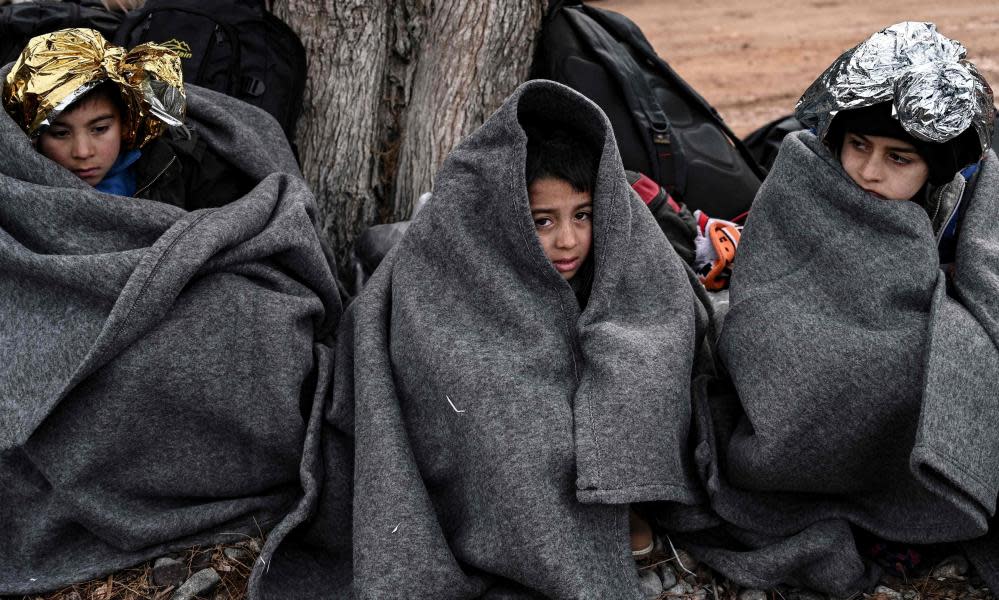Lesbos braces for more refugees as Turkey threatens to open borders

Indignation and a sense of preordained fate have gripped Lesbos as the Aegean island long on the frontline of the refugee crisis readies itself for possible new arrivals on its beaches following Turkey’s stated intention of no longer impeding access into Europe for migrants.
Along the shoe-horn harbour of Mytilene it was business as usual as the sun went down: cafes were brimming, boats were docking after a day out on a silky smooth sea, local teenagers were getting into the spirit of a long holiday weekend. But it was hard not to miss the police in full kit, as soldiers and coastguard officials gathered outside a squat two-storey building on the harbour front. Inside, the minister for shipping, Yannis Plakiotakis, freshly arrived from Athens, was discussing contingency plans that in the words of one official will see “every boat and every patrol we have out on the sea”.
“We’ve prepared for this day, we knew it might be coming and now we are on red alert,” said Manos Logothetis, general secretary in charge of asylum seekers’ reception at the ministry of migration. “We have a stock of 50,000 tents, enough to accommodate 400,000 people but of course we don’t want it to come to that,” he told the Guardian.
Related: A doctor’s story: inside the ‘living hell’ of Moria refugee camp
As the Greek prime minister, Kyriakos Mitsotakis, furiously worked the phones – holding talks with the leaders of Germany, France and the EU commission – the mood was one of mounting inevitability. News of teargas being fired at one point by Greek border guards to keep people from crossing over the land frontier did not help matters.
“We know it’s only a matter of time,” said Theodoras Boulas, a local restaurant-owner, stopping on one of Mytilene’s cobbled streets to discuss the issue. “We can see what is happening in Syria.”
How residents will react if large numbers of people do arrive is hard to predict. Earlier this week, against a backdrop of paralysing general strikes, fierce clashes erupted as locals engaged in hand-to-hand combat with riot police sent from Athens, in protest over new migrant detention camps being constructed on the island. Mitsotakis flies into Samos tomorrow, kicking off a tour of the Aegean islands following the clashes.
Mention of Moria, the notorious open-air holding facility that is now home to 22,000 people barely a 20–minute drive from Mytilene, elicits none of the compassion that it did when the crisis first erupted. Increasingly tolerance has been replaced with racism and worse.
Vassillis Vasilopoulos, a seaman sitting outside the betting shop in the harbour, said: “What I predict is that even more than we have seen, Greek will turn against Greek, there will be a lot of trouble if they don’t go.”

 Yahoo News
Yahoo News 
